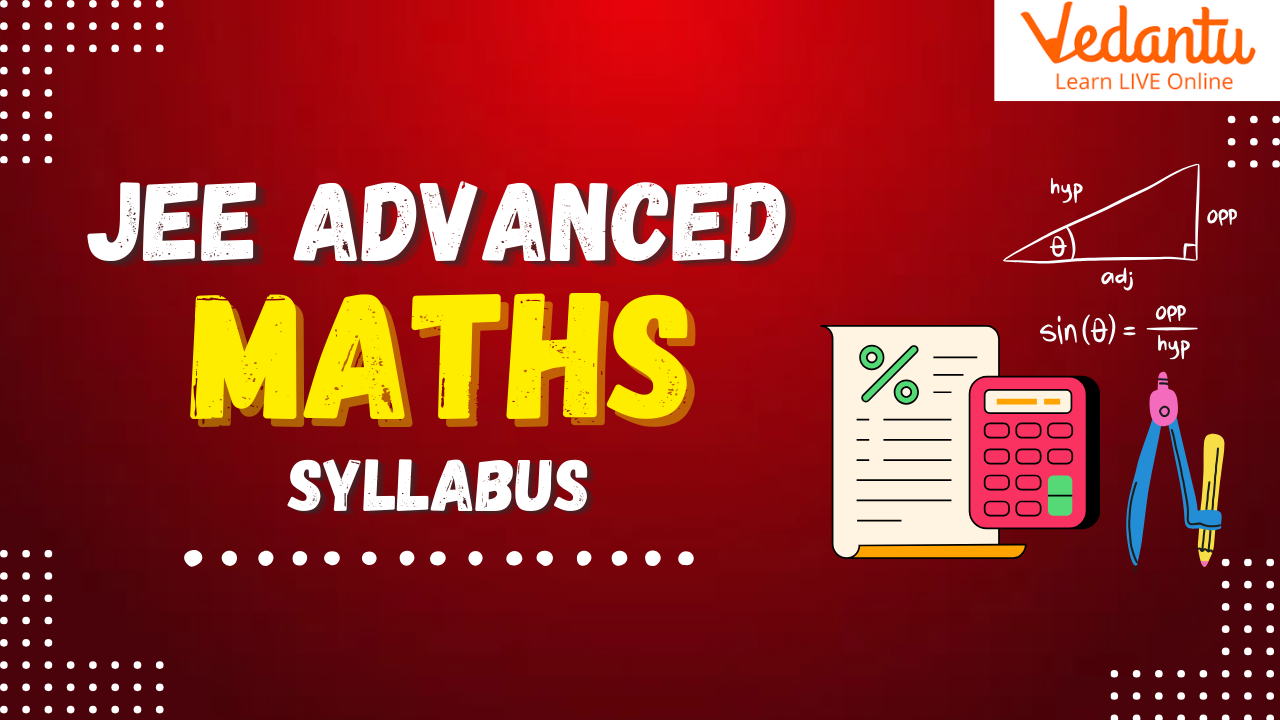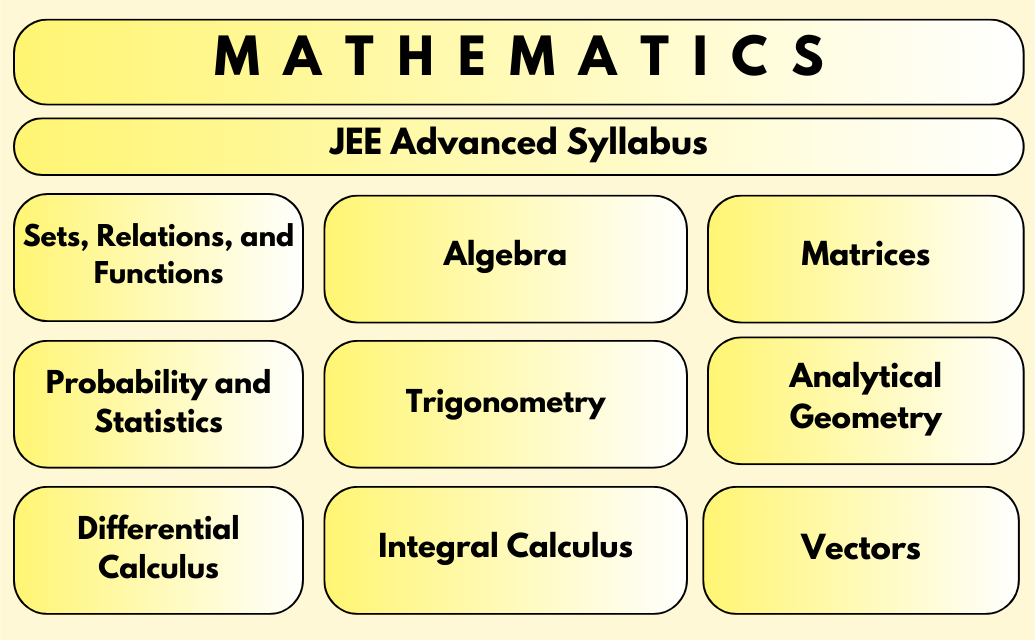JEE Advanced Updated Maths Syllabus 2026: Download The Topic-Wise PDF with Weightage
FAQs on JEE Advanced 2026 Syllabus for Mathematics: Download FREE PDF
1. How do I prepare for both the JEE Advanced and the board exams at the same time?
JEE Main and 12th Board exams usually always occur at the same time. It forces the student to focus solely on JEE preparation. As a result, it is critical to study for both the board examinations and the JEE at the same time. Aspirants who choose the correct content, books, and tutoring are far more likely to succeed in the exam. Certain publications, such as NCERT and HC Verma, feature numerous questions from practical applications of principles that might help you study for both exams. Vedantu has all the materials that will be of great use when you face yourself against such a situation. Head over to the website and let our experts guide your way through.
2. What is the weightage for each topic in the JEE Advanced Maths Syllabus 2026?
The weightage for each topic in the JEE Advanced Maths Syllabus 2026 is not officially released by the Joint Entrance Examination (JEE) Advanced. However, based on past years' question papers, it is estimated that the weightage for each topic is as follows:
Algebra: 30%
Calculus: 35%
Coordinate Geometry: 20%
Vectors: 15%
3. What is the JEE Advanced Mathematics Syllabus for 2026?
The JEE Advanced Mathematics Syllabus for 2026 is based on the syllabus for Classes 11 and 12 of the Central Board of Secondary Education (CBSE) and other equivalent boards. It covers a wide range of topics, including algebra, calculus, coordinate geometry, and vectors.
4. What are the important chapters for each topic in the JEE Advanced Mathematics Syllabus?
Here are some of the important chapters for each topic in the JEE Advanced Mathematics Syllabus:
Algebra: Sets, relations, and functions, Complex numbers, Permutations and combinations, Quadratic equations, Binomial theorem, Sequences and series, Matrices and determinants
Calculus: Differential calculus, Integral calculus, Applications of calculus
Coordinate Geometry: Lines and circles, Parabolas, ellipses, and hyperbolas, Three-dimensional geometry
Vectors: Vector algebra, Applications of vectors
5. What is the difference between the JEE Main and JEE Advanced Mathematics Syllabus?
The JEE Main Mathematics Syllabus is less comprehensive than the JEE Advanced Mathematics Syllabus. The JEE Main Syllabus covers the essential topics from all four domains of mathematics: algebra, calculus, coordinate geometry, and vectors. The JEE Advanced Syllabus covers a more in-depth and rigorous treatment of these topics.
6. What is the syllabus for advanced maths?
The JEE Advanced Maths syllabus covers the following key topics:
Sets, Relations, and Functions: Understanding sets, various types of relations, and properties of functions.
Algebra: Matrices, determinants, permutations and combinations, quadratic equations, binomial theorem.
Trigonometry: Trigonometric identities, inverse trigonometry.
Calculus: Differential calculus (limits, continuity, differentiation, applications), integral calculus (integration, applications).
Analytical Geometry: Two-dimensional (lines, circles, parabolas, ellipses, hyperbolas) and three-dimensional geometry (lines, planes, spheres).
Probability and Statistics: Basic concepts, random variables, probability distributions, measures of central tendency and dispersion.
Vectors: Addition, scalar multiplication, dot and cross products, their geometrical interpretations.
7. What is the difference between basic and advanced maths?
While basic maths covers fundamental arithmetic operations, algebra, and geometry, advanced maths delves deeper into:
More complex concepts: Advanced maths introduces concepts like calculus, vector analysis, probability theory, etc.
Abstraction and theoretical depth: It requires a higher level of abstraction and theoretical understanding.
Problem-solving complexity: Advanced maths problems often involve multistep solutions and require applying various concepts together.
8. How can I improve my advanced maths?
Here are some tips to improve your advanced maths skills:
Solid foundation: Ensure a strong grasp of basic maths concepts before diving into advanced topics.
Practice regularly: Solve problems consistently from various resources like textbooks, previous year papers, and mock tests.
Focus on understanding: Don't just memorize formulas; strive to understand the underlying concepts and their applications.
Seek help: Don't hesitate to seek guidance from teachers, tutors, or online resources when facing difficulties.



























